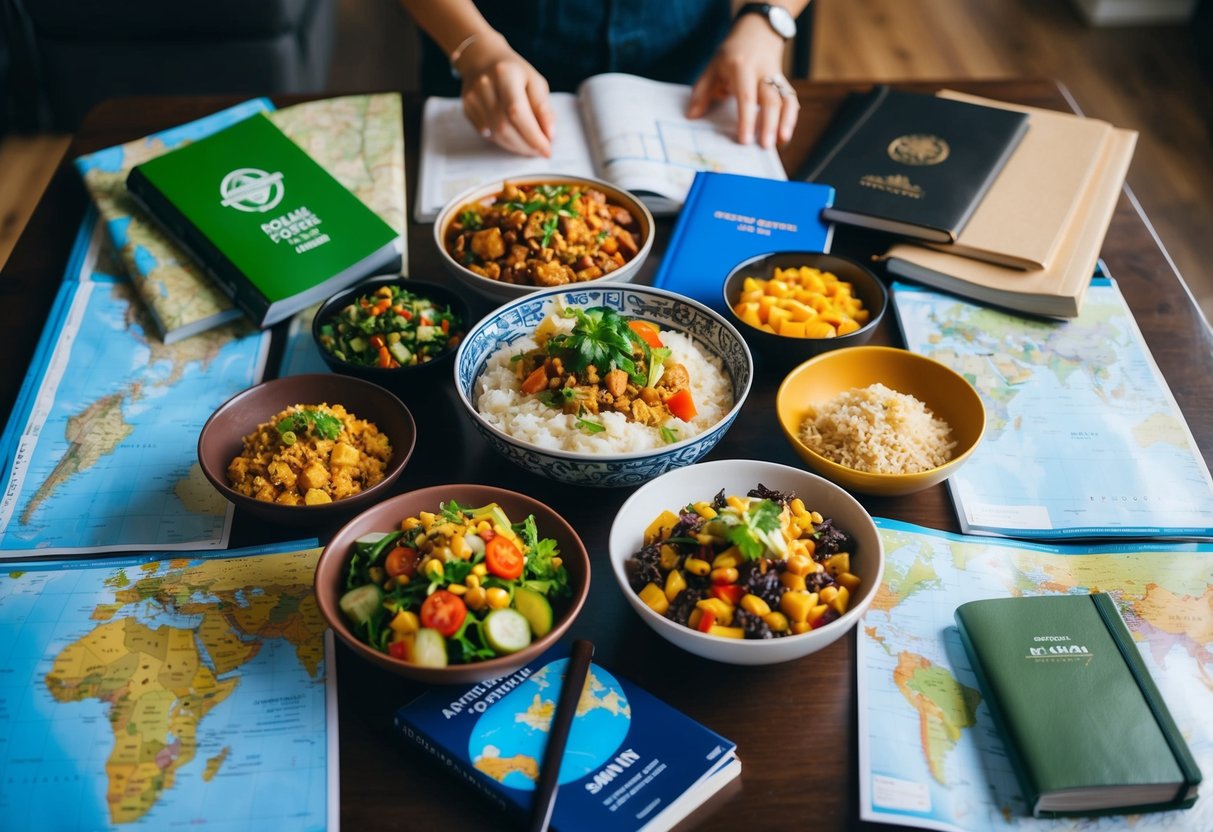Ultimate Guide to Frugal Adventure Travel
Dining and Food Savings

When traveling on a budget, careful planning around meals can lead to substantial savings. Below are strategies focused on maximizing your dining experiences without stretching the wallet.
Shopping Local Markets
Shopping at local markets offers an authentic glimpse into the culture while providing access to fresh and often less expensive produce.
Travelers find more budget-friendly options by purchasing in-season fruits and vegetables. Additionally, local specialties are often available at lower prices than in restaurants, allowing for a taste of regional flavors without the cost of dining out. Interacting with vendors might also lead to informal discounts, especially when buying in bulk, rendering this a true win for any budget-conscious traveler.
Self-Catering to Save Money
Self-catering is another effective method to reduce dining expenses. Opting for accommodations with kitchen facilities, such as hostels or vacation rentals, allows travelers to cook their meals, offering control over ingredients and costs.
Even without a full kitchen, simple meals like sandwiches or salads can be easily prepared. Purchasing staple ingredients and relying on easy-to-cook recipes can transform the dining experience into a cost-effective and satisfying endeavor. This approach not only cuts costs but also provides a sense of home-like comfort, beneficial for long-term travelers.
Safety and Insurance
Ensuring safety and having the right insurance coverage is paramount when embarking on a frugal adventure travel. Travelers should prepare by understanding the essentials of travel insurance and maintaining health and safety while abroad. This preparation helps mitigate unforeseen risks and ensures peace of mind during the journey.
Travel Insurance Essentials
Travel insurance is an essential component of any travel plan, providing coverage for unexpected events such as trip cancellations, medical emergencies, and lost luggage. Different policies offer varying levels of protection, so it’s important to compare and choose one that meets individual needs and budgets.
For those engaging in adventurous activities, it’s crucial to ensure that the insurance policy includes coverage for activities like hiking, scuba diving, or skiing. Some policies require riders for extreme sports, and it’s wise to scrutinize the fine print in these cases.
When selecting travel insurance, consider factors such as coverage limits, exclusions, and claim processes. It’s beneficial to carry a copy of the policy and emergency contact numbers during the trip for easy access if needed.
Health and Safety Abroad
Maintaining health and safety while traveling begins with research. Understanding the local health care system, prevalent diseases, and necessary vaccinations can prevent many health-related issues. Visitors should prioritize staying informed about local customs, laws, and safety advisories.
Carrying a basic first-aid kit and any necessary prescription medications is advisable, especially when visiting remote areas. Staying hydrated, eating safe foods, and having awareness of natural hazards in the area can contribute significantly to staying healthy.
Being cautious in crowded places, securing personal belongings, and avoiding isolated areas at night enhances personal safety. Establishing contact with local authorities or embassies can provide assistance in emergencies and ensure a safer travel experience.



